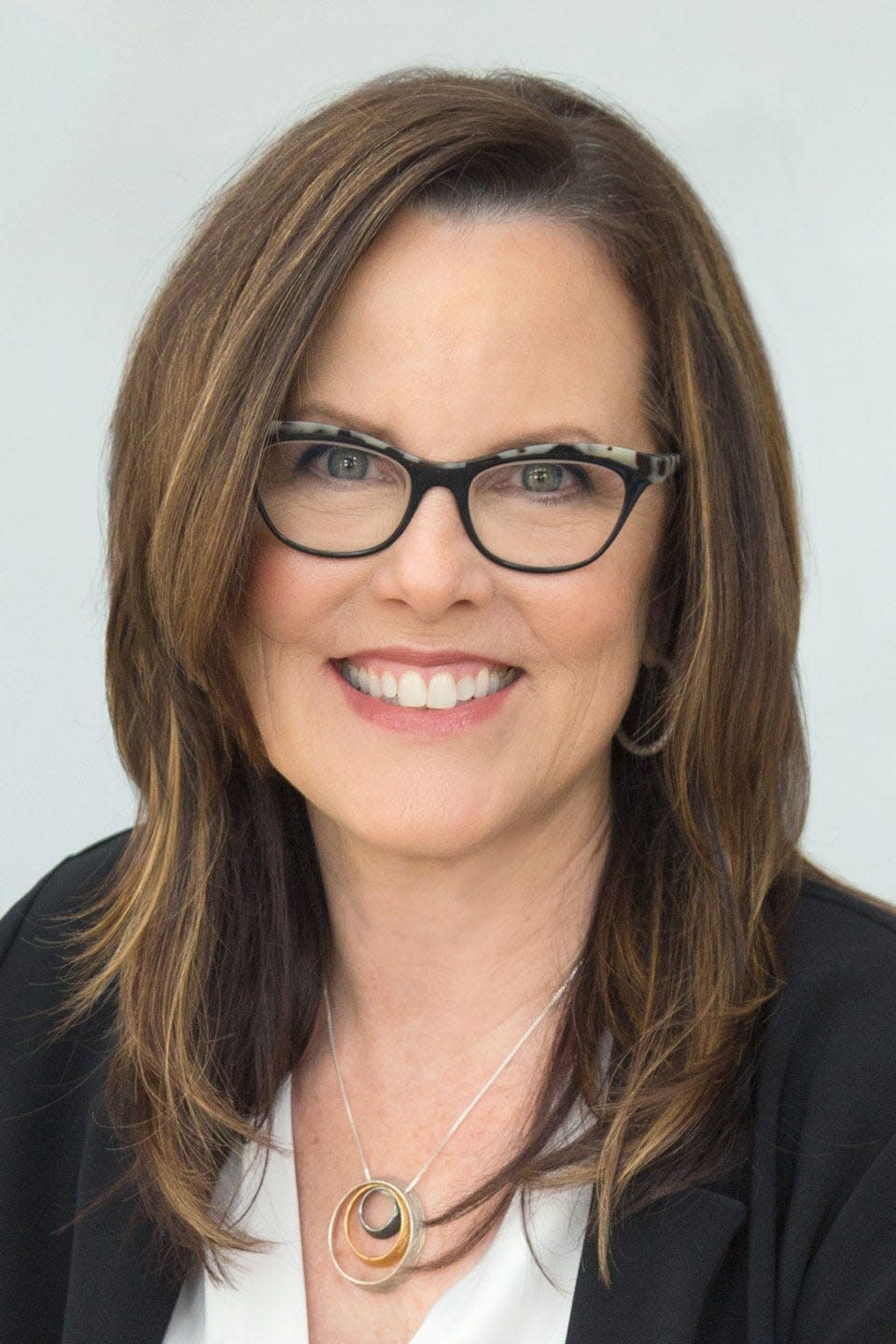Opinion: Women still make much lower salaries than men 60 years after Equal Pay Act

Do you ever take a moment to reflect on how far you’ve come? I personally have a hard time wrapping my head around the fact that I have been in the investment consulting business for 42 years! When I started, there were very few women as advisers and even fewer women in leadership roles. I am a believer in the phrase “if you see it you can be it.” However, the financial services business had few examples of what women like me could “be.”
My mother, Jean Webb, made her own history in our area through her work in revitalizing the French Broad River Corridor as the first executive director of what is now Asheville GreenWorks. She used to think she wasn’t a great example for me because she was not a businesswoman, but she showed me more important skills, how to be a good advocate.
As we celebrate Women’s History Month, I want to focus on the history of women’s financial health.
Pay equity is often the first topic when it comes to women’s financial health but is only one part of the story. March 14 was Equal Pay Day. This is not a day to celebrate but instead, a symbolic day denoting how far into the year a woman must work to be paid what a man was paid the previous year. The gap is significant. Based on the latest U.S Census figures, a woman who works full time is paid, on average, just 84% of a typical man’s salary. Sadly, this date in March does not tell the whole story. In 2023, Black Women’s Equal Pay Day is July 27, Mom’s Equal Pay Day is Aug. 15 and Latina Women's Equal Pay Day is Oct. 5.
More:Editor: Open call for women to share their voices, during Women's History Month and always
In 1963, the Equal Pay Act was signed into law. The needle did not move very much from 1963 to when I entered the workforce in 1981, when it hovered around 59.2%. Improving to 84% in 60 years is not good enough. We still have a ways to go.
It may not seem significant, but a 16% gap has a huge impact over a lifetime. According to the National Women’s Law Center, on average, a full-time working woman lost wages adds up to about $398,160 over a 40-year career. The NWLC estimated it would take about 12 years of extra work for a woman to match a man’s earnings.
Wages have a direct correlation to Social Security benefits. The Social Security system is, theoretically, gender agnostic. However, benefits are based on your lifetime earnings. If you have earned less, your benefits will be less.
Adding to the disparity, women tend to have more caretaking responsibilities. This had an impact on my time, and on my ability to work and earn. The time taken out of the workforce to care for others prevents a woman from contributing more to her employer sponsored retirement plan-magnifying the gap even further.
More:Opinion: Women's History Month reminder: Equal rights for women still not legally ratified
In addition to the pay gap, there is also a savings and investing gap. In an MFS Heritage Planning Piece, “Should I Stay or Should I Go,” even a seven-year break in employment can mean the difference between $263,000-$382,000 in retirement savings over a 43-year period.
To push the high heel in even further women live longer, are paid less, are able to save and invest less, and have on average lower Social Security benefits. Go to any retirement facility, and you will see, the majority of residents are women.
See how far we haven’t come?
So, how do we begin to rectify this critical situation? Well, before we can change a societal mindset, we must first change our own.
Most women grew up in a culture where it was impolite or “tacky” to talk about money. Therefore, women often hold fears or lack knowledge about finances. One of the best things you can do for yourself, and for the next generation, is to educate yourself and then impart the value of money, the necessity of saving and the benefits of investing. This, in addition to accepting and owning your worth!
It is critical for women to take control of their financial futures. Let’s make history by closing the wage gap by first closing our own knowledge gaps about money.
Believe me, this is a cause worth getting behind … so we don’t get further behind!
Laura Webb is the founder and president of Webb Investment Services, Inc., based in Asheville, NC. She is a CFP® professional and the creator of the Her Two Cents podcasts, which focuses on helping women normalize the conversation around money. For the rest of the story, visit webbinvestmentservices.com or email her at laura.webb@raymondjames.com.
https://www.aauw.org/resources/article/equal-pay-day-calendar/
https://www.pay-equity.org
More:Opinion: We must unite around our youths to ensure their success
This article originally appeared on Asheville Citizen Times: Opinion: Closing the wage gap. History of women’s financial health.

